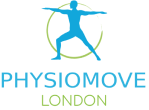
Waking up every day with a headache, a sore jaw, and teeth that feel unusually worn down can leave you wondering what’s happening. You might be grinding your teeth, a condition known as bruxism. And you’re not alone; millions around the world share this experience. This seemingly harmless habit can have serious consequences for your dental health, overall well-being, and quality of life.
Understanding Bruxism
Bruxism, also known as teeth grinding, is a common oral parafunctional habit where individuals grind or clench their teeth, often involuntarily. Research has found that this condition can happen to both adults and children and manifests in two forms: awake bruxism, occurring while conscious, and sleep bruxism, which takes place while a person is asleep.
Awake bruxism usually results from stress, anxiety, or hyperactivity. Sleep bruxism is often related to sleep disorders, like sleep apnea, and can be harder to identify without a partner’s observation or a dental professional’s input.
Understanding the underlying causes of bruxism is essential for effective prevention. Stress, anxiety, depression, and an imbalance of the neurotransmitter dopamine are common triggers. Dental misalignments, genetics, and lifestyle factors, like excessive caffeine or alcohol consumption, can also play a role in exacerbating the condition.
When it comes to prevention, start with stress management techniques like yoga, meditation, or seeking therapy to address underlying emotional issues. Reducing caffeine and alcohol intake can help. Dentists may recommend wearing a mouthguard during sleep to prevent teeth damage.
Early observation is crucial, particularly in children. While it’s commonly a phase in a child’s development, dental monitoring is often recommended. Evaluation and occasional check-ups with Dentists may aid in preventing potential long-term consequences of teeth grinding in young patients.
The Consequences of Bruxism
According to the British Dental Journal, neglecting bruxism can lead to severe consequences, particularly for your dental health. Teeth grinding can wear down tooth enamel, leading to tooth sensitivity, pain, and fractures. As the protective enamel erodes, teeth can become prone to decay and cavities.
Jaw pain is a prevalent consequence of bruxism, as it puts excessive pressure on the temporomandibular joint (TMJ), making eating and even talking painful. Ultimately, this can end up causing discomfort, limited jaw movement, and other problems such as disc displacement or arthritis.
Additionally, bruxism can lead to chronic headaches, as the constant tension in the jaw muscles radiates pain throughout the head and neck. In some cases, this discomfort can extend into the shoulders and upper back.
Moreover, long-term bruxism can even result in tooth loss. The continuous pressure and grinding weaken the tooth structure, making them more susceptible to damage. As a result, bruxism can lead to broken or missing teeth, requiring extensive dental treatment.
Physiotherapy for Bruxism
Physiotherapy has proven effective in many musculoskeletal and neurological conditions as a non-pharmacological treatment, and a study found that it is no different with Bruxism, proving that physiotherapy is an emerging and effective approach to managing the condition. While it doesn’t directly address the dental aspect, it focuses on the muscular components associated with teeth grinding and clenching. Physiotherapists use various techniques to help patients mitigate bruxism-related issues, such as:
1. Muscle Relaxation Techniques: Physiotherapists can employ techniques like myofascial release and trigger point therapy to relax the overactive muscles that contribute to bruxism. By releasing muscle tension, they can alleviate the pressure on the jaw joint, which may reduce grinding and clenching.
2. Posture and Body Mechanics: Sometimes, bruxism is connected to poor posture or misalignment of the head, neck, and spine. Physiotherapists can assess and correct these issues through exercises and postural education, which can alleviate strain on the jaw and facial muscles.
3. Stress Management: Bruxism is often exacerbated by stress and anxiety. Physiotherapists can teach relaxation techniques and coping strategies to manage stress, indirectly addressing its impact on bruxism.
4. Customised Exercise Programs: Physiotherapists can create personalised exercise programs to strengthen and balance the muscles involved in jaw movement. This can enhance jaw stability and reduce the likelihood of grinding or clenching.
5. Temporomandibular Joint (TMJ) Mobilization: TMJ disorders are closely related to bruxism. Physiotherapists can use manual techniques to improve the mobility of the jaw joint, potentially reducing discomfort and grinding.
Remember, physiotherapy is not a standalone treatment for bruxism but can be a valuable component of a multi-disciplinary approach. If you’re struggling with bruxism or related issues, don’t hesitate to consult us at Physiomove for an assessment and personalised guidance on how to manage your condition effectively.
FAQ
Q: Can bruxism affect more than just my teeth and jaws?
A: Yes, bruxism can have far-reaching consequences. It can cause chronic headaches, jaw pain, and even affect your neck, shoulders, and back due to the constant tension it creates.
Q: How does physiotherapy relate to dental treatments for bruxism?
A: While physiotherapy doesn’t directly address dental aspects, it complements dental treatments. It primarily concentrates on the muscular components involved in teeth grinding and clenching. A multi-disciplinary approach often provides the most effective solution.
Q: Is physiotherapy recommended for all cases of bruxism?
A: Not necessarily. The effectiveness of physiotherapy depends on the individual’s specific condition and its underlying causes. A healthcare provider or physiotherapist can assess whether physiotherapy is suitable in your case.
Q: Can bruxism be entirely prevented?
A: Prevention is possible, especially when stress management techniques, lifestyle changes, and early interventions are part of the strategy. These approaches can help manage and reduce the severity of bruxism.

